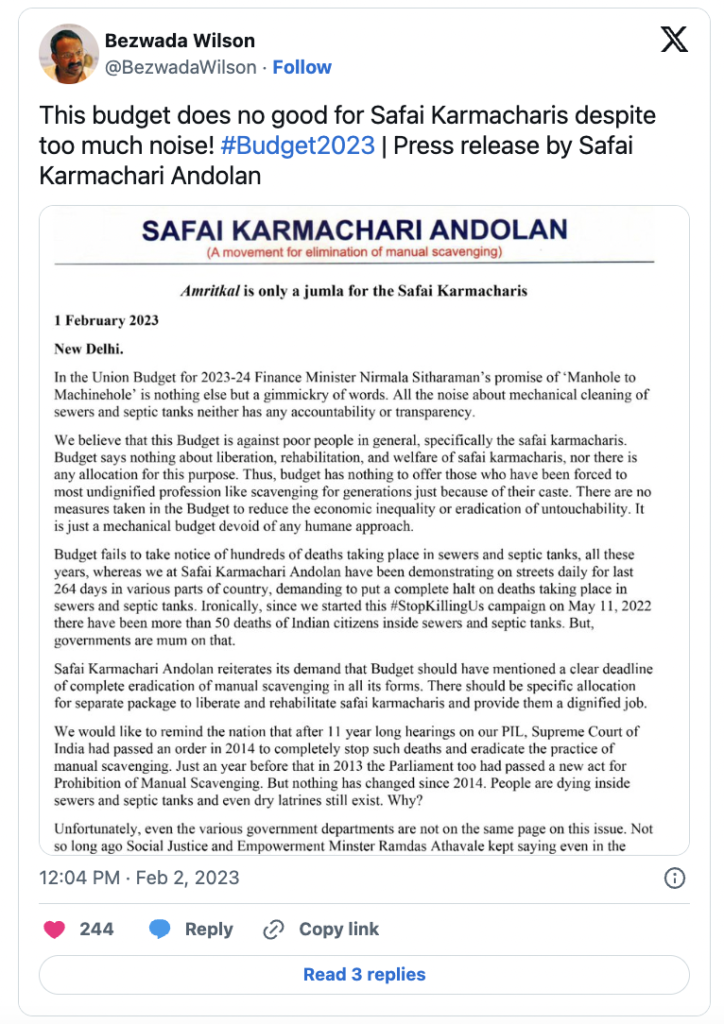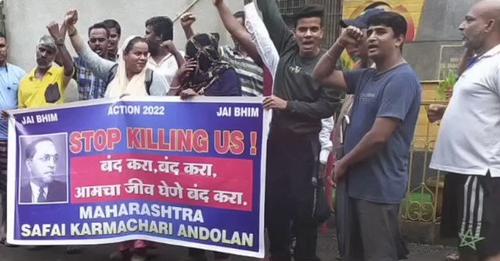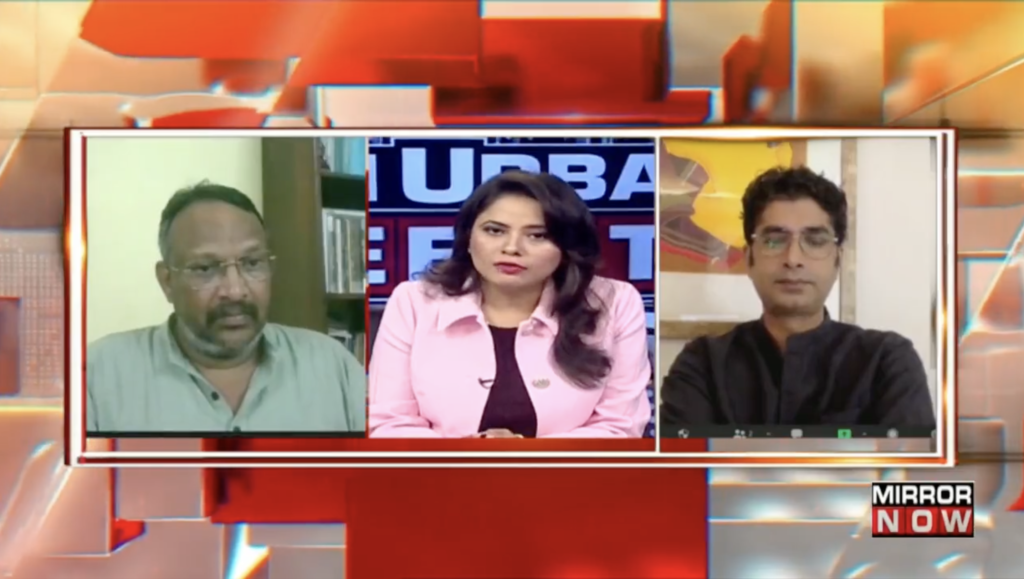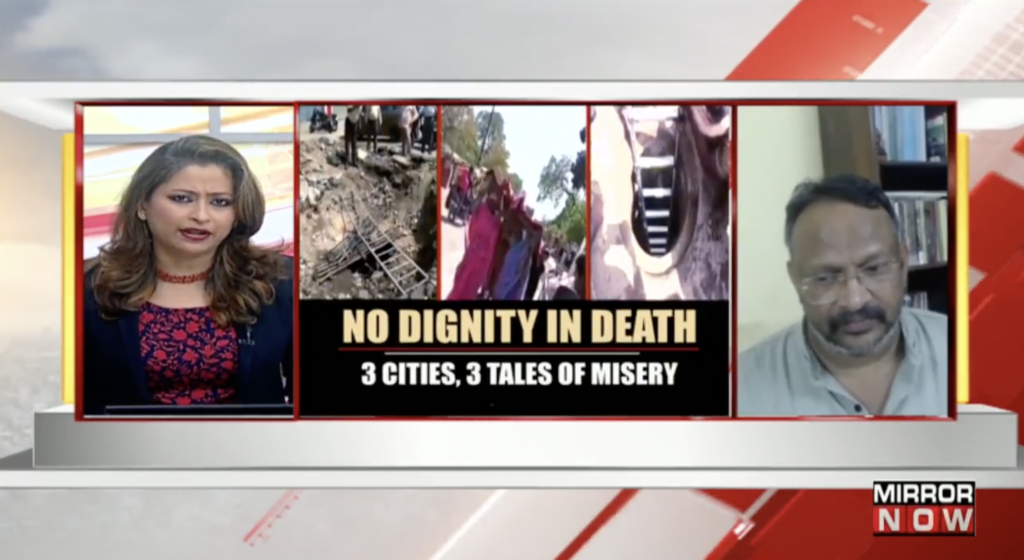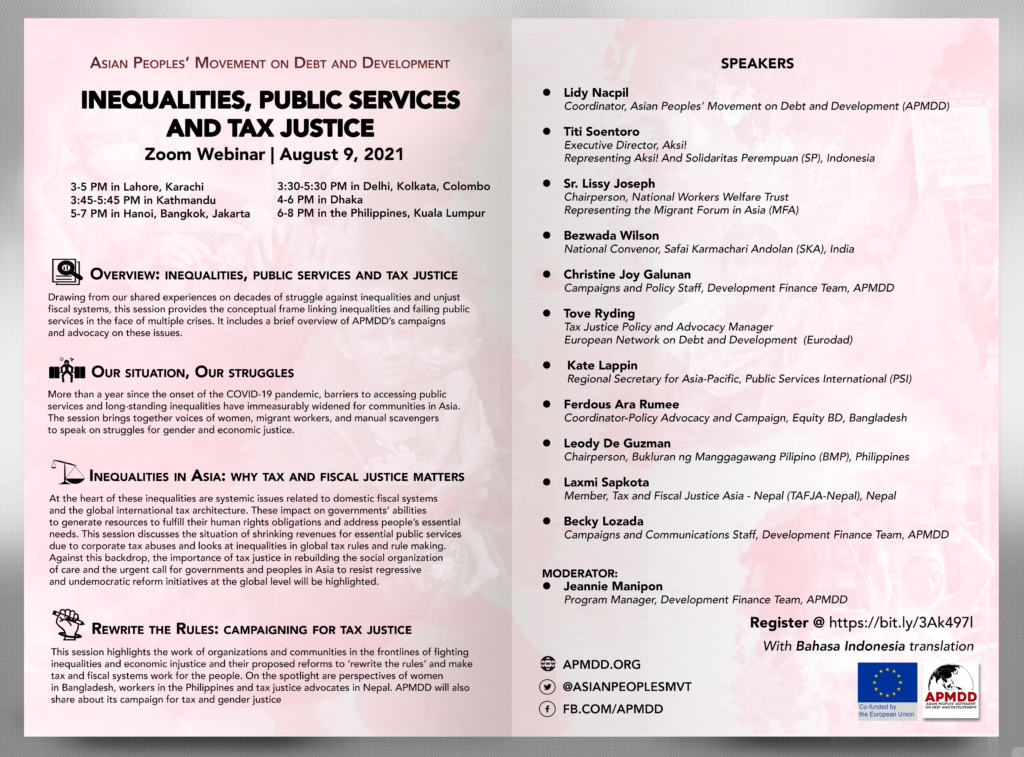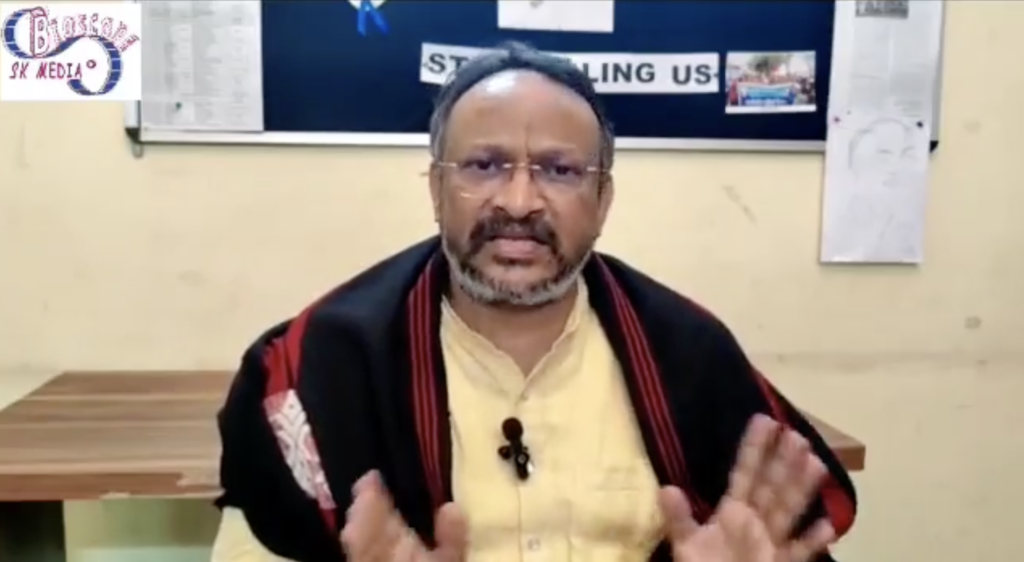
“[The] budget fails to take notice of hundreds of deaths taking place in sewers or septic tanks, all these years, whereas we at Safai Karamchari Andolan have been demonstrating on the streets daily for the last 264 days in various parts of the country, demanding to put a complete halt on deaths taking place in sewers and septic tanks. Ironically, since we started this #StopKillingUs campaign on May 11, 2022, there have been more than 50 deaths of Indian citizens inside sewers and septic tanks. But, governments are mum on that.”
Safai Karamcharis Andolan responded to the Union Budget for 2023-2024 with a press release and a video. The organisation raised the issue of the SRMS (rehabilitation scheme) being removed from the budget and merging with the ‘NAMASTE’ scheme which only allocates budget for producing sewage cleaning machines, but not for the people.
The question was raised of why the human element has been lost and how the people themselves will be supported to step out of this work.

